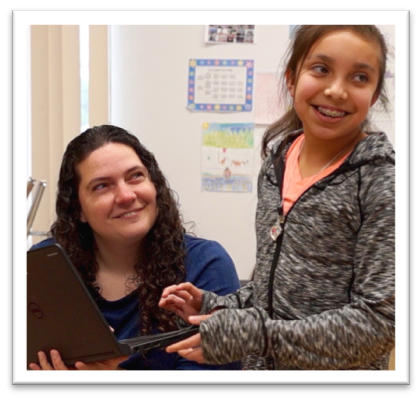Session 1
M - Th, 1 - 4 pm
Experiential Education & Community-Based Learning
Instructor: Kara McCrimmon
Course Overview: This course will immerse educators in experiential education, demonstrating how community spaces can serve as dynamic learning environments. Educators will engage in hands-on experiences, reflect on best practices, and develop strategies for integrating curriculum-aligned experiential and community-based learning into their classrooms.
Definition of Experiential Education
According to the Association for Experiential Education (AEE), experiential education is “a philosophy that informs many methodologies in which educators purposefully engage learners in direct experiences and focused reflection to increase knowledge, develop skills, and clarify values.” John Dewey, often credited as a foundational thinker in experiential learning, emphasized that “education is not preparation for life; education is life itself.” This course applies these principles to help educators create meaningful, real-world learning experiences for students.
By the end of the week, participants will have:
A draft experiential learning lesson or unit plan.
A list of community resources and potential partnerships.
A reflection journal from the week
A contact list of other educators interested in remaining connected to support one another in practice
Session 2
M - Th, 1 - 4 pm
Strengthening Our Community: Educators and the Path to Local Resilience
Instructors: Jakob Erle and Alan Furth
Course Overview: This hands-on course gives educators practical tools and strategies to help their students and communities become more resilient. Using the United Nations’ Sustainable Development Goals (SDGs) as a guide, we’ll explore real-world challenges and opportunities right here in Maine.
A key part of this course is the SDG Game Tool—a fun, interactive way to understand how different aspects of sustainability, from local economies to environmental stewardship, are connected. Every participant will receive this resource to use in their own classrooms.
Through engaging discussions, game-based learning, and collaborative projects, you’ll:
Break down the 17 SDGs in a way that makes sense for rural communities.
Use the SDG Game Tool to explore how small actions can create a significant impact.
Create lesson plans and activities that tie global sustainability goals to local issues.
Learn how to inspire students to think critically and take meaningful action for their future.
Join us and discover how education can powerfully strengthen our towns, support local livelihoods, and build a more resilient future for Maine!
By the end of the week, participants will have:
A deeper understanding of sustainability,
Hands-on experience with a new teaching tool,
A plan to bring these ideas to life in your school and community.
Accessible connections for yourself and your students with people in your region and around the world who are working with the SDG Game for Dialogue and Action
Session 3
Tu - F, 9a - 12p
Trauma Responsive Education
Instructor: Cat Biddle & Maria Frankland
Course Overview: Students come to school with a myriad of positive and challenging or even traumatic experiences that we both know and don’t know about as educators. This strand will focus on meeting students where they are when they walk in the door, and fostering a classroom environment that affirms their personhood and dignity.
To do this, we will start with ourselves: what do we bring to the classroom with us that shapes how we teach and how we respond to our students? Then we’ll move to understanding how trauma impacts learning, and what we as educators can do to foster spaces that center healing as well as academics.
By the end of the week, participants will have:
Practical strategies for relationship building that foreground agency and voice in our classrooms in ways that support healing and growth for our students
Concrete ideas for the fall, as well as an individual learning plan to support their own continued growth as trauma-responsive educators.
Session 4
Tu - F, 9a - 12p
Indigenous Language, Culture, History & Education
Instructors: Newell Lewey and Cyril M. Francis
Course Overview: In this strand open to all educators, we will be exploring Indigenous language, culture, history, and education. We will step into the past to help us understand where we come from, we will embrace our present time so that we can work together for mutual understanding, and we will look to a brighter future where we will all share our cultural knowledge for the betterment of our communities.
By the end of the week, participants will be able to:
Demonstrate a foundational understanding of key aspects of Indigenous histories, cultures, and languages relevant to the region.
Identify and reflect on the impacts of colonization on Indigenous communities and education systems.
Apply culturally responsive and respectful practices when incorporating Indigenous perspectives into their teaching.
Foster meaningful connections with Indigenous knowledge keepers, community members, and resources.
Embrace a fuller understanding of the 2001 law LD291 which requires educational institutions to teach Maine Wabanaki natives.
Preview current Wabanaki Curriculum created in conjunction with Portland Public School (PPS) and Wabanaki advisors.
Enjoy ongoing connections with a circle of educators committed to learning and advocacy for Indigenous inclusion and equity in education.







